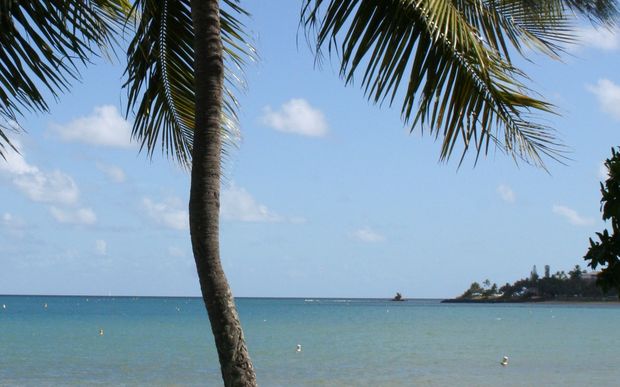The confirmation of new Covid-19 cases in New Zealand and the associated administrative bungles has dampened some enthusiasm for a travel bubble with the Pacific.
But it’s also further highlighted the difficult bind they find themselves in – risk the devastation of the coronavirus or prolong their economic suffering.
Fletcher Melvin, the head of the Cook Islands Chamber of Commerce and the Private Sector Taskforce, has been pushing hard for a travel bubble.
When Aotearoa declared zero cases a week ago, he was ecstatic, and so was the government – 87 percent of the country’s economy relies on tourism, three quarters of those visitors from New Zealand.
But when three cases were declared this week, amid revelations of quarantine and border failures, Mr Melvin admitted he was rattled. Although he was still keen.
“At this point if things go well and they can quickly contain it then we still think that it’s viable and they can put some other things in place.
“But you know there are other people in the Cook Islands that are worried about it, they’re still very worried about it and fair enough,” Mr Melvin said.+
The Cook Islands is lifting its quarantine restrictions for passengers arriving from New Zealand this weekend. It was hoped the move would be reciprocated.
But in parliament, Cook Islands Prime Minister Henry Puna called the developments concerning and said he was keeping a close eye on things.
“We must continue to be vigilant in our control of our borders.
“We cannot afford to relax, but we have every confidence in the abilities of our medical professionals to give us the best advice that has so far seen us through this Covid challenge,” Mr Puna said.
But in Samoa, a country devastated by the measles last year, enthusiasm has waned.
Prime Minister Tuilaepa Sailele Malielegaoi told his programme on Radio 2AP that plans to reopen the border to New Zealand were being reconsidered.
That could also throw a spanner into plans to bring home hundreds of seasonal workers still stranded here.
An Otago University epidemiologist, Professor Michael Baker, said they had a right to be sceptical.
“I think that is the question that Pacific islands will now have when they look at New Zealand: Is New Zealand taking enough precautions to ensure our elimination status is maintained?
“You know, it goes both ways because many Pacific islands, they worked very hard to exclude this virus entirely.”
On the whole, Michael Baker said it was unlikely community transmission was in New Zealand, but it was probably wise to hold off bubble plans for a couple of weeks.
Colin Tukuitonga, a Pacific health expert at Auckland University had been a strident bubble advocate .
However he said he could understand why the mood had dampened.
“Obviously the fact that it wasn’t particularly well managed would cause some concern and so I can imagine people proceeding cautiously now.”
But Dr Tukuitonga still thought a bubble was a good idea, adding that Pacific countries were confronted by a horrendously difficult decision.
“It’s a hard one and at the end of the day the decision balancing the health risks of introducing the virus and the ongoing destruction or decimation of the economy,” he said.
“So at some stage the islands would want to make a call on what they would want to do.”The Cook Islands still planned to open their borders this month and French Polynesia would be doing the same next month.
But both have said they would not hesitate to quickly change their minds if the situation developed further.






